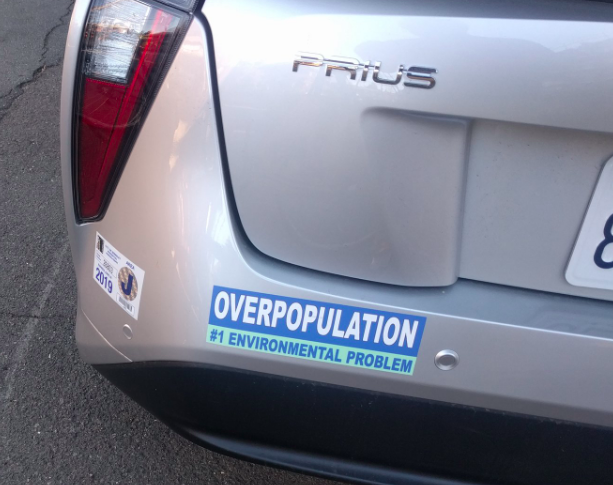Conspicuous non-consumption is really faux environmentalism; climate change is a social problem, not a personal one
We’re in the midst of the holiday shopping season, a potent reminder of how consumerism dominates so much of our lives. Even before black Friday, merchants have been flogging their holiday wares; even before all the Halloween candy had been eaten, the Christmas catalogs were in the mail. While it’s a reminder of the commercialism that so dominates the season, it also provides a window in the way in which we’ve conflated consumption with status and virtue signaling.
For more than 90 years, Dallas-based department store Neiman-Marcus issues its famously extravagant catalog with a range of complex and exotic goods. It’s not clear how many people purchase, for example custom-made suits of armor, Boeing business jets, or a submarine, , but those that do are no doubt signalling to others, by their purchase, that they have high levels of wealth. It’s a classic behavior of conspicuous consumption, a term coined by Economist Thorstein Veblen in the 19th century.
While that kind of extravagance may be seen as signalling status in some quarters, for many, we really want to let other people know that we care about the environment and that we embrace green values. And for many of us, apparently, It’s not so important to be green, as it is to feel green, and to be seen by others as being green. Corporations, non-profits and many people are devoting considerable effort to demonstrate their environmental sensitivity to others. That was reinforced a while back when we got an unsolicited promotional request from a consultant who helps companies and cities with branding.
The consultant describes and praises various efforts organizations have employed to differentiate themselves or their products as green or socially responsible. An oil company blended some lower carbon ethanol into their product, and made hay boasting about its (somewhat) lower greenhouse gas emissions. Pizza Hut has famously flogged its efforts to fill potholes. But no one should mistake this kind of self-congratulatory corporate virtue-signalling as a serious response to either climate change or deteriorating infrastructure.
Individually, this greenwashing is harmless enough to simply ignore, but collectively it pernicious because it creates the illusion that we’re doing something serious to solve these problems, and it thereby whole diverts energy from the social and political consensus needed to take steps that would deal with these problems at scale.
The pernicious stuff includes, for example, as we’ve documented at City Observatory, the demonstrably bogus claim that a $31 million suburban parking garage–which provides unlimited free parking for employees and visitors–merits any kind of recognition as an environmental paragon, notwithstanding that the US Green Building Council awarded “LEED Platinum” status to just such a garage built, ironically, by the National Renewable Energy Research Lab.”
Similarly, Apple, which has just announced its building a big new campus in the suburbs outside Austin, Texas, brags that the buildings will be powered by 100 percent renewable energy. Just don’t pay any attention to the fact that the facilities 15,000 employees will all have to travel by car to reach the location because its so remote from the city center and the region’s transit system. The energy consumed by commuting will dwarf the emissions that would be associated with heating, lighting and cooling the building.
The problem with ignoring the energy use associated with commuting and providing green certification for parking garages is that it simply rationalizes sprawl and automobile dependency, and reinforces the illusion that modest technical fixes (especially ones that are endorsed by the certifying agencies) are all that is required to solve the big global challenges we face.
Clearly consumers want to identify themselves and their actions with those who care about the environment, but this kind of branding and mostly trivial actions have almost no meaningful impact on the larger problem.
These often expensive and showy displays of public greenery are not really intended to do anything serious to affect the environment. Instead, they are, as Thorstein Veblen described them acts of “conspicuous consumption” or what we might now call “conspicuous non-consumption.” They’re not undertaken to solve a problem, but merely to bolster the image (or salve the conscience) of the person or organization taking the action.
UCLA economist Matthew Kahn documented that people who lived in communities with more Green Party registered voters in California were more likely to engage in a variety of green behaviors, including riding transit and owning hybrid vehicles. Interestingly, though, he found that greens were disproportionately likely to buy a Prius (a vehicle available only as a hybrid model, signalling one’s green credentials) as opposed to car models that offered both conventional and hybrid powertrains.

Wearing our hearts on our sleeves–or on our bumpers, is no substitute for policies that address problems at scale. A Berkeley Prius owner may rail against overpopulation on their back bumper, but apparently has no qualms about taking advantage of highly subsidized on-street car storage. Berkeley neighborhood parking permits run $66 per year, or about $5.50 per month, or less than 20 cents per day.
Just as consumerism has twisted and overshadowed the meaning of Christmas, so too does Nieman-Marcus environmentalism threaten to trivialize the causes, nature and solutions of our environmental problems. Ultimately, we have to realize that environmental degradation is a social and not a personal problem. We can’t address climate change solely through acts of personal contrition or self-abnegation, we need to fundamentally change the rules of the game, particularly by taxing carbon, to send powerful and universal signals to everyone about how they should invest, produce and consume (or not consume) in order to have a sustainable planet.

